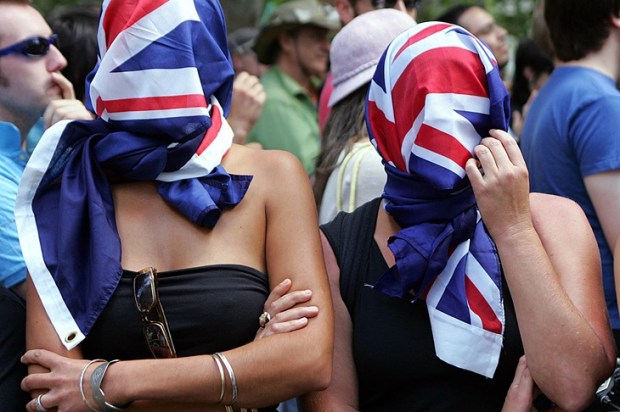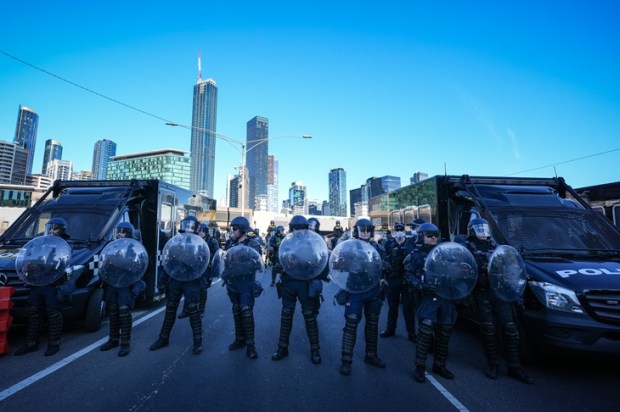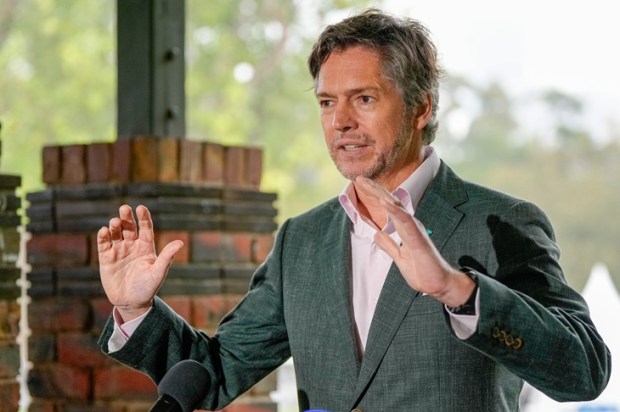Sportswear giant Puma has gotten itself into a bungle. To polish its Woke credentials, the company decided to drop its ‘K-leather’ (kangaroo) football boots for a Vegan option called ‘K-better’ (which, to the dismay of Australian producers, seems to imply that kangaroo leather is somehow less desirable).
Puma’s website hammers this home, stating:
Sports company PUMA has redesigned its legendary KING football boot by introducing its new K-BETTER technology to deliver exceptional performance without kangaroo leather.
The PUMA KING has been worn by legendary players such as Johan Cruyff, Diego Maradona, Eusébio, Lothar Matthäus and Pelé, who dominated international football for decades. Now the KING is returning to the pitch supercharged with the latest PUMA technology and for the first time ever made with K-BETTER, a completely new, non-animal based upper material. The upper contains at least 20 per cent recycled material as a step toward a better future.
K-BETTER has proven to outperform the previous KING K-Leather in testing for touch, comfort, and durability. PUMA is so convinced by the performance characteristics of K-BETTER that it will stop producing football boots with kangaroo leather altogether this year.
It’s nothing short of passing a moral judgment on kangaroo leather. You might also notice the little nod to the Climate Change movement in there as well.
‘Going Vegan’ is all the rage in the fashion industry – even amongst the meat-eaters who get to feel slightly better about their last burger by buying animal-friendly footwear. Don’t try to understand this generation. They assemble their value as a human being based upon their behaviour as a consumer, all while decrying capitalism as the world’s great evil. If they can live with that hypocrisy, any nonsense is possible.
Puma is not alone. Nike has released a statement to ‘tackle climate change’, Adidas has committed itself to decarbonisation, and Lacoste changed its crocodile logo to various endangered animals after being accused of pollution in the Yangtze and Pearl rivers by Greenpeace. ‘Green’ is ‘cool’. You don’t have to prove it, you just need to write it across the shop window.
By caving into various animal rights groups obsessed with targeting fashion groups, Puma has upset Australia. Kangaroo leather producers are saying that the executives at Puma have fallen for an ‘international campaign of misinformation’. Lindsay Packer, Chairman of Packer Leather, spoke to The Australian.
‘It’s fake news and they don’t want to look at the facts. Some days I get upset. It affects employment. It affects dollars.’
This is no small thing for kangaroo leather producers, worth $200 million to Australia’s export trade, as Puma is a large customer selling football boots into the lucrative elite sports industry. This message will go live to the international stage and tempt other retailers to follow in their endless eco advertising competition. Nike has already followed, which is unsurprising given their hand was forced by an Oregon bill. As ESPN reports:
This comes after the introduction of a bill in mid-January in Oregon — where Nike is headquartered — that would ban the sale of “any part of a dead kangaroo or any product containing a part of a dead kangaroo”. The punishment would include up to a year in prison, a $6,250 fine, or both.
There is also a bipartisan bill that was introduced in the House of Representatives, the Kangaroo Protection Act of 2021 (H.R. 917), that would prohibit and criminalise the import, transport, and sale of all kangaroo products in the United States for commercial purposes. California is currently the only other state that prohibits the sale of kangaroo-based products.
Adding insult to injury, there are now sports stars hopping on the virtuous bandwagon claiming ‘K-better’ is, in fact, better for performance. That remains a matter of opinion. According to the Daily Mail, some shoemakers disagree, saying that natural leather products are superior to Vegan alternatives.
The industry-wide switch to Vegan products is almost certainly because retailers don’t want to fend off noisy animal rights groups painting a picture of kangaroo heads on the feet of sports stars. The activists sell the message that ditching kangaroo products will save animal lives, but kangaroos still have to be routinely culled to stop them from reaching plague proportions. The difference now is that the carcasses will go in the ground, out of sight from the virtuous mob – but ultimately wasted (which goes against their eco-sustainability message).
The kids that shy away from buying leather shoes are usually also desperate to preserve Indigenous lifestyles from the ‘evil’ colonial empire (which gives them their air conditioning, iPhone, and UberEats). One wonders how keen they’d be to preserve the tribal lifestyle if they saw endangered animals beaten to death on a regular basis, gutted, and served up with their skin hanging over the nearest tree. After all, there is a distinct lack of activism to save the dugong and sea turtle from hunting.
Puma has stumbled onto the problem underpinning the entire youth eco-activist movement – it is being led by kids with no idea how the real world looks. Their stomachs turn at the harsh reality of the natural environment they’re trying to save and, through the ignorance of their activism, these lobbying movements are poised to endanger existing ecosystem management systems in foreign countries. The activist generation raised by Greta Thunberg’s speeches are very similar to children who think meat comes from the supermarket rather than the farm and if they saw their lab-grown food being born in Petri dishes, they might throw that up too. Urbanisation has detached them from the Earth and so their solutions are equally unhinged from reality.
Not that Puma is likely to mind. They are a sportswear brand trying to sell shoes to a market that wants lab-made, virtuous products.
As the activists say:
‘Big business is waking up to what consumers want. We don’t need to kill a national icon to make soccer boots and we shouldn’t be doing this in the 21st century. The real narrative is a national icon is being barbarically slaughtered overnight and their babies are discarded to make pet food, shoes and bags. Europeans are waking up to it. Americans are waking up.’
Can the Kangaroo Industry Association of Australia and the Department of Agriculture, Fisheries and Forestry combat this rhetoric well enough to win over the soy-latte generation? I highly doubt it.

























